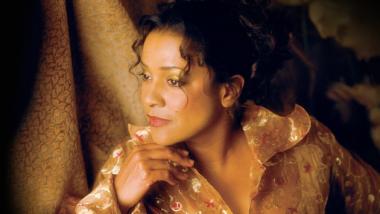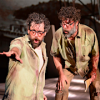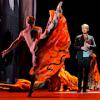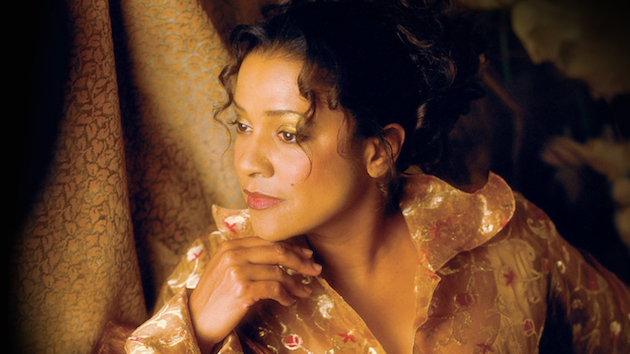
It was under the dark cloud of the Stephon Clark shooting in Sacramento and the continuing protests of Black Lives Matter that lyric soprano Kathleen Battle brought her evocative combination of words and music, “Underground Railroad: A Spiritual Journey” to the Valley Performing Arts Center in Northridge on Thursday.
Previously performed at the Metropolitan Opera in New York (in 2016) and later at the Kennedy Center in Washington D.C., “Underground Railroad” combines the hope for a better life expressed through African-American spirituals with the impassioned anti-slavery rhetoric of Frederick Douglass, Harriet Tubman, and Sojourner Truth.
Gowned in black and swathed in a scarlet silk wrap, Battle, who will turn 70 in August, showed that she is still every inch the diva. She was accompanied by pianist Joel A. Martin and the 24 members of the Albert McNeil Jubilee Singers, under the direction of Dr. Diane White-Clayton.
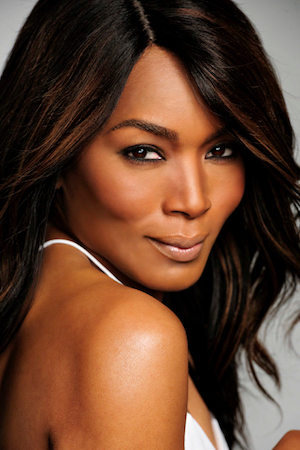
The concert’s series of emotionally charged recitations were delivered with artistry and thunderclap righteousness by actress Angela Bassett, who with perfect coiffure and glittery couture looked ready for the red carpet at the Academy Awards.
The sentiments varied from Harriet Tubman’s lament that the Underground Railroad could not deliver all the slaves in the South to freedom, to Frederick Douglass’s incendiary address to the Rochester Ladies’ Anti-Slavery Society on July 4, 1852, “What, to the slave, is the Fourth of July?” This is the same address that Peter Sellars and John Adams incorporated so effectively during the Fourth of July climax of Girls of the Golden West.
For African-American slaves, gathering in church and raising their voices in these spirituals offered a ray of hope that deliverance might come, if not on Earth then in the heavenly fields across Jordan. Spirituals created a holy bond within slave communities rooted in the belief that there was a savior who was aware of their plight.
But it was the creation of the Underground Railroad that gradually turned spirituals and field songs into coded messages of resistance, offering guidance to those that were willing to get on board for the Promised Land.
Once famous for her inspired interpretations of characters from Mozart operas and Handel oratorios, Battle’s voice remains a flute-like instrument that can soar to its uppermost range with glistening clarity.
As a singer of gospel music, she does not convey the religious fervor of Mahalia Jackson or the sheer vocal magnitude of Jessye Norman. Battle’s voice is a luminous instrument that would have been better served in a smaller hall, or ideally a church setting. There were also times when the lightness of her voice felt at odds with the rambunctious, roadhouse-style piano playing by Martin. But when the musical forces aligned, as they did during the first half in renditions of “City Called Heaven,” “Hush,” and “Swing Low Sweet Chariot,” the effect was mesmerizing.
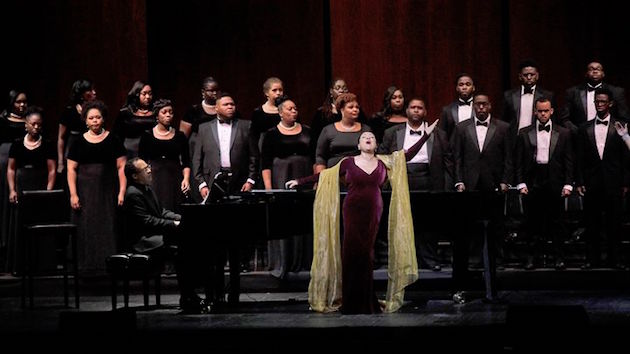
It was during the second half of the concert that the combination of words and music really found its dramatic and musical balance. The lyricism of Battle’s interpretations of “Hold On, Gospel Train,” “In Bright Mansions,” and, in particular, “Fix Me, Jesus” captured the glorious combination of faith and hope that personifies the spiritual.
The second half of the concert also took much greater advantage of Bassett’s ability as an orator. She infused Frederick Douglass’s condemnation of an America that would allow the atrocities of slavery, with fire and brimstone. She brought passionate urgency to the words of Harriet Tubman and Sojourner Truth and illuminated poems by Robert Hayden and Dr. Charles Blockson.
But it was Douglass’s words questioning whether the act of granting a black man’s freedom actually brought equality that really struck a chord. The paradox illuminated by those words, spoken over 150 years ago, echoed throughout the hall with all the resonance of current tragic events.
After the final rousing work on the program, “Ain’t Gonna Let Nobody Turn Me Round,” Battle offered a remarkable solo rendition of “Were You There When They Crucified My Lord?” It was a profound way to begin the Easter holiday.

